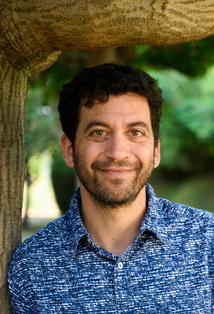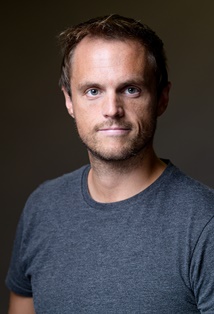The International Human Frontier Science Program Organization (HFSP) announced today some 37 million USD to support the top 4% of the HFSP research grant applicants over the coming 3 years. The 32 winning teams in the 2022 competition for research grants went through a rigorous year-long selection process in a global competition that started with 716 submitted letters of intent involving scientists with their laboratories in more than 50 different countries. This year, 7 Research Grants - Early Career and 25 Research Grants - Program were selected for funding. Each team member receives on average 110,000 USD - 125,000 USD per year.
HFSP's collaborative research grants are given for a broad range of projects under the umbrella theme “Complex mechanisms of living organisms". The program supports cutting-edge, risky projects and it is the only program that enables true global collaboration among international teams of scientists with laboratories in different countries.
Prof. Raz Jelinek, VP and Dean of R&D at Ben-Gurion University, "Congratulations to our grant recipients who once again show that BGU is doing world-class research."
Dr. Shai Pilosof, Head of the Ecological Complexity Lab in the Department of Life Sciences is the coordinator of the study: How do ecological network dynamics mediate the response of organisms to novel environments?

His co-applicants include Dr. Manlio De Domenico, University of Padua, Italy and Dr. James Hall, University of Liverpool, UK.
The team's project deals with a fundamental challenge in biology, relevant to a world fraught with human impact: Can we predict the response of organisms to environmental changes? Animals, plants, bacteria, and other organisms can cope with environmental changes – such as those resulting from climate change – by slightly adjusting their traits. For example, some animals can change their diets or move to areas where environmental conditions are adequate. However, organisms do not live in isolation but in diverse communities where they form complex networks of interactions. So how do organisms cope with environmental changes when embedded within their communities? They will investigate this question by integrating theory and experiments using bacteria as a model organism. Bacteria are a dominant life form, colonizing almost every environment. In addition, bacteria interact in many ways. For example, they compete for resources or produce metabolites that other bacteria can use. Therefore, they are highly dependent on community interactions. While targeted at bacteria, insights from this work will have broad implications for other organisms. This work is only achievable through a unique international collaboration that bridges ecology and evolution, microbiology, and statistical physics.
Dr. Benjamin Palmer of the Department of Chemistry is a co-applicant with coordinator Dr. Devi Stuart-Fox of the School of BioSciences University of Melbourne, Australia and co-applicant Athanasia Tzika of the Dept. of Genetics and Evolution, University of Geneva, Switzerland.

Dr. Palmer will be part of a team trying to answer the question: "What explains the extraordinary diversity of color in the natural world? This question has been a subject of fascination for centuries. It has been approached from multiple perspectives – from physics and chemistry to developmental and evolutionary biology – yet rarely are these perspectives integrated. Consequently, our understanding of the mechanism and evolution of color in the natural world remains fragmented. This problem is epitomized by color generation in the skin of vertebrates. Reptiles, amphibians and fish produce vivid skin colors using a combination of pigment cell types (chromatophores), which contain light-absorbing pigments and light-scattering organic crystals. There are fundamental gaps in our understanding of the pigment-structure interactions within this pigment cell complex, and of their molecular development and control. By integrating different disciplines and recent advances in imaging, analytical techniques and molecular biology, the team can address these fundamental gaps to understand how diverse colors are produced within living skin."
HFSP Program Grants appeal to the innovative and creative potential of the research teams. The 2022 HFSP investigators display remarkable depth in approach and innovative thinking as they start their intercontinental collaborations.
The Human Frontier Science Program is an international program of research support implemented by the International Human Frontier Science Program Organization (HFSPO) based in Strasbourg, France. Its aims are to promote intercontinental collaboration and training in cutting-edge, interdisciplinary research focused on the life sciences. HFSPO receives financial support from the governments or research councils of Australia, Canada, France, Germany, India, Israel, Italy, Japan, the Republic of Korea, New Zealand, Singapore, Switzerland, the UK, the USA, as well as from the European Union. With its collaborative research grants and postdoctoral fellowships, the Program has issued over 4500 awards involving more than 7500 scientists from all over the world. Since the beginning of the Program in 1989, 28 HFSP awardees have gone on to win the Nobel Prize.